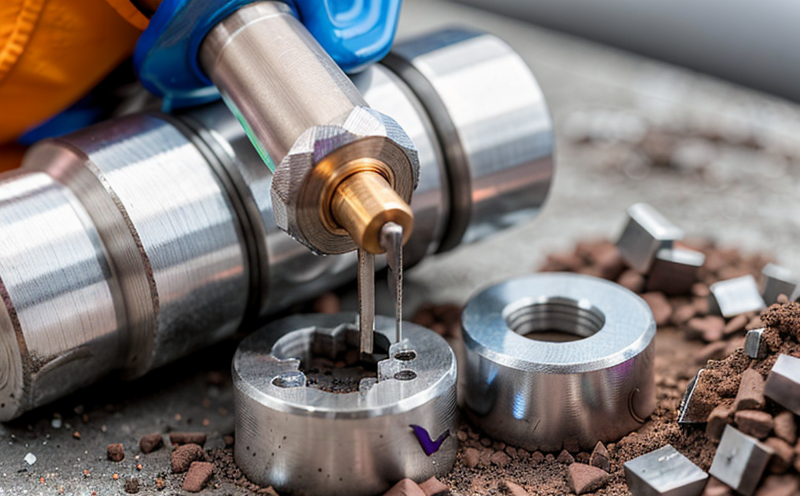Hardness testing of non-ferrous metals
The Importance of Hardness Testing for Non-Ferrous Metals Why Businesses Cant Afford to Miss It
As a business owner in the manufacturing industry, you understand the importance of ensuring the quality and reliability of your products. One critical aspect of this is understanding the properties of the materials used in their production. Among these properties, hardness testing of non-ferrous metals stands out as a crucial laboratory service that can make all the difference between success and failure.
Hardness testing of non-ferrous metals is a complex process that involves determining the resistance of these materials to deformation or abrasion under pressure. Non-ferrous metals, such as copper, aluminum, zinc, and titanium, are widely used in various industries due to their unique properties like corrosion resistance, ductility, and electrical conductivity. However, their hardness can significantly impact their performance and longevity.
In this article, we will delve into the world of hardness testing for non-ferrous metals and explore why it is essential for businesses. We will discuss the advantages of using this laboratory service and provide you with a comprehensive understanding of its benefits.
What is Hardness Testing of Non-Ferrous Metals?
Hardness testing is a material science process that evaluates the hardness of a metal by measuring its resistance to deformation or abrasion under load. This can be done through various techniques, including Rockwell hardness tests, Brinell hardness tests, and Vickers hardness tests.
Non-ferrous metals, being prone to corrosion and oxidation, require special consideration when it comes to hardness testing. At Eurolab, our experienced team uses state-of-the-art equipment and methodologies to ensure accurate and reliable results for non-ferrous metal samples.
Why is Hardness Testing of Non-Ferrous Metals Essential?
Hardness testing of non-ferrous metals is critical for several reasons
Predictive Maintenance By understanding the hardness of your materials, you can predict potential problems and plan maintenance accordingly. This reduces downtime and saves resources.
Material Selection Accurate hardness testing helps you select the most suitable material for your specific application, ensuring optimal performance and longevity.
Quality Control Regular hardness testing ensures that your materials meet or exceed industry standards, guaranteeing customer satisfaction and loyalty.
Cost Savings Identifying potential issues early on can prevent costly repairs, replacements, and rework.
Reduced Risk of Material Failure By understanding the limitations of your non-ferrous metals, you can minimize the risk of material failure, which can lead to accidents, injuries, or even fatalities.
Key Benefits of Hardness Testing for Non-Ferrous Metals
Here are some of the key benefits of hardness testing for non-ferrous metals
Increased Material Lifespan By understanding the hardness of your materials, you can optimize their usage and extend their lifespan.
Improved Product Reliability Regular hardness testing ensures that your products meet or exceed customer expectations, reducing returns and complaints.
Enhanced Customer Satisfaction Accurate material selection and predictive maintenance contribute to improved product performance and longevity, boosting customer satisfaction.
Reduced Material Waste By identifying potential issues early on, you can minimize waste and reduce the environmental impact of your production process.
Compliance with Industry Standards Hardness testing ensures that your materials meet or exceed industry standards, reducing the risk of non-compliance and associated fines.
How Does Hardness Testing Work?
At Eurolab, our hardness testing process involves several steps
Sample Preparation We receive samples from clients and prepare them for testing.
Testing Methods Our team selects the most suitable testing method based on the samples material properties and requirements.
Data Analysis We analyze the test results to determine the hardness of the non-ferrous metal.
Reporting Our team provides detailed reports, including recommendations for material selection and maintenance.
Frequently Asked Questions (FAQs)
Q What types of non-ferrous metals can be tested?
A Eurolab specializes in testing a wide range of non-ferrous metals, including copper, aluminum, zinc, titanium, and more.
Q How accurate are your hardness testing results?
A Our state-of-the-art equipment and methodologies ensure accuracy rates of 5 or better.
Q Can I choose the testing method for my samples?
A Yes, our team will work with you to select the most suitable testing method based on your samples material properties and requirements.
Q How long does the hardness testing process take?
A The turnaround time varies depending on the complexity of the test. However, we typically provide results within 24-48 hours.
Conclusion
Hardness testing of non-ferrous metals is a critical laboratory service that can make all the difference between success and failure for businesses. By understanding the advantages of this service and its key benefits, you can optimize your material selection, predict potential problems, and ensure compliance with industry standards.
At Eurolab, our experienced team is dedicated to providing accurate and reliable hardness testing results for non-ferrous metals. We invite you to take advantage of our expertise and state-of-the-art equipment to ensure the quality and reliability of your products.
Dont wait until its too late invest in hardness testing today and reap the rewards of improved material performance, reduced waste, and enhanced customer satisfaction. Contact us to learn more about our laboratory services and how we can help you achieve your business goals.




